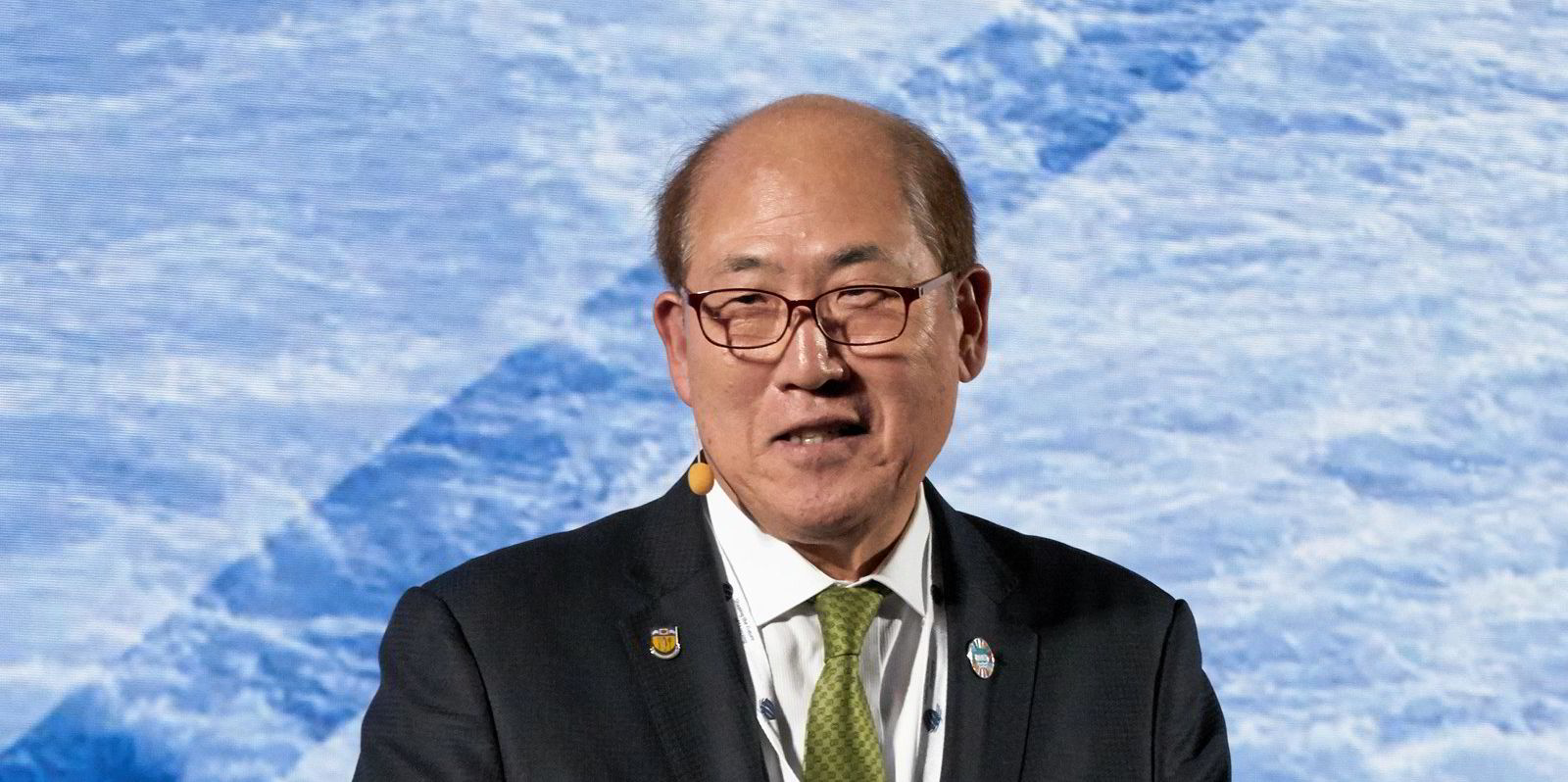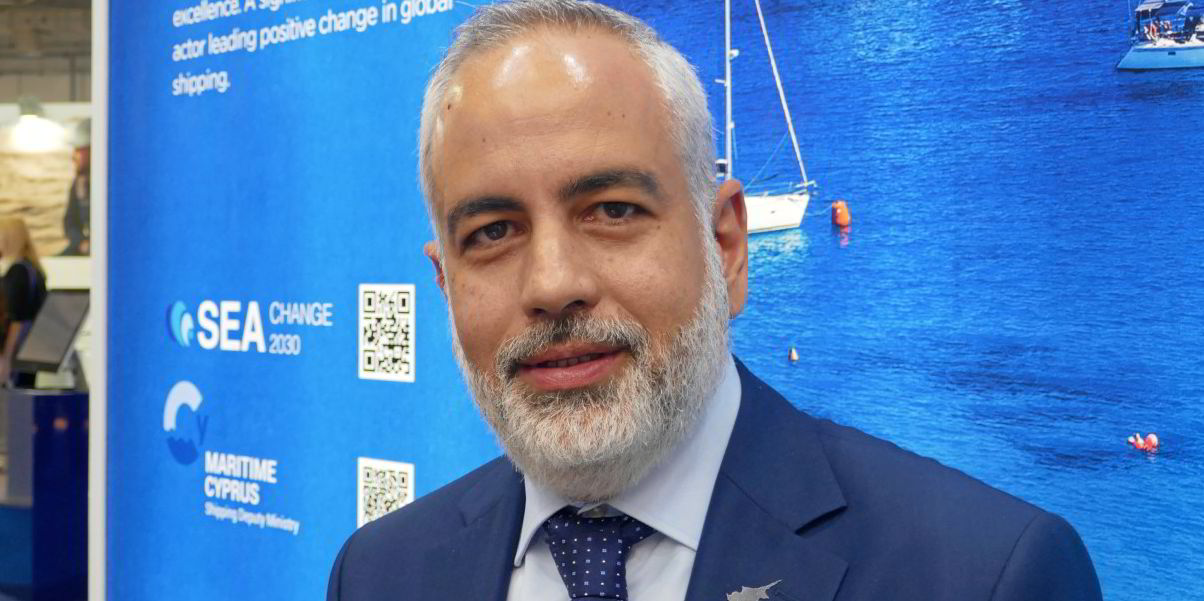Cyprus is losing some shipping business after the European Union imposed wide-ranging sanctions against Russia, but not to an extent that would jeopardise its role as a major ship management centre or flag state.
“Any loss for us will be manageable,” said Vassilios Demetriades, Cyprus’ cabinet member in charge of shipping, in an interview with TradeWinds during Posidonia on Wednesday.
The most conspicuous impact is the planned departure of Sovcomflot (SCF Group), which entertained offices in the country for about 30 years, having set up shop there right after the fall of communism.
“The loss for us will be ... that around 100 Cypriots will be unemployed,” Demetriades said.
In the grand scheme of things, however, Cyprus shipping does not depend on Russian interests, said Demetriades, whose formal title is shipping deputy minister to President Nicos Anastasiades.
Cyprus is an EU member with a history of close business ties with Russia.
It has nevertheless helped carry out six consecutive rounds of EU sanctions against Russia to punish it for its invasion of Ukraine.
At the same time, however, Cyprus and other EU peers with maritime interests such as Greece and Malta saw to it that shipping-related sanctions didn’t upset the level playing field in the international competition between ship registers.
In Demetriades’ view, an initial proposal to ban EU-flag ships from carrying Russian oil even to third countries would have just led to massive flagging-out from Europe without hurting Russian oil exports at all.
In the end, the import ban applied to EU countries only and just the insurance of ships acquired global reach — after a transitional period of six months.
“We managed to do that,” he said. That way, “everybody will be affected, but at least when it comes to flags, to registration, we’re playing on a level playing field — we will not face this enormous flagging-out from Europe”.
Building bridges
Asked to comment on talks at the International Maritime Organization’s Marine Environment Protection Committee on potentially raising emission goals, Demetriades said Europe should try to meet its own goals but not lose sight of the fact that, in the end, it must find common ground with non-European nations.
Any measures and targets adopted at EU level should be “scalable and adjustable at a global level” and include “a sunset clause ... once the IMO delivers”.
“We don’t believe there’s a silver bullet,” he said, adding that imposing EU positions globally will not work.
“We have to listen to the views of other regions and to better understand their position, because, after all, we have to reach a compromise.

“I think Cyprus is trusted by non-Europeans — that we’re ready to listen and bring the views of other regions into this framework.”
One factor that may have won Cyprus credit in other parts of the world is its coronavirus vaccination, crew change and repatriation programme that benefited tens of thousands of seafarers.
More than 20,000 crew working on Cyprus-flag ships received anti-Covid jabs, regardless of their nationality or where in the world their ship was.
Seafarers and companies have also begun making use of another initiative announced by Cyprus in April to open bank accounts there for seafarers who cannot get paid salaries due to the Ukraine war and sanctions.
“I think this works and demonstrates that whenever there’s a crisis or an urgent need, we’re trying to the utmost to deliver,” Demetriades said.
At the snap of one’s fingers
His deputy shipping ministry now focuses on delivering SEA Change 2030, a wide-ranging modernisation programme for the country’s shipping administration announced late last year.
Efforts to fully digitalise the ship registry by the end of 2023 are on track, Demetriades said. Cyprus plans to transit to being fully paperless even sooner, helped by a mobile app that will incorporate digital services.
A new tonnage tax system, which provides discounts to shipowners whose environmental performance exceeds mandatory targets, kicks in this year.
In another initiative aimed at putting Cyprus on the map as a maritime arbitration centre, lawyers and the shipping community have been asked to send representatives to a new committee scheduled to be in place in the autumn.
Towards the end of the year, the country will also set up a separate shipping registrar, just for shipping entities, to accelerate their registration.
It will go “just like that”, Demetriades said, snapping his fingers.



